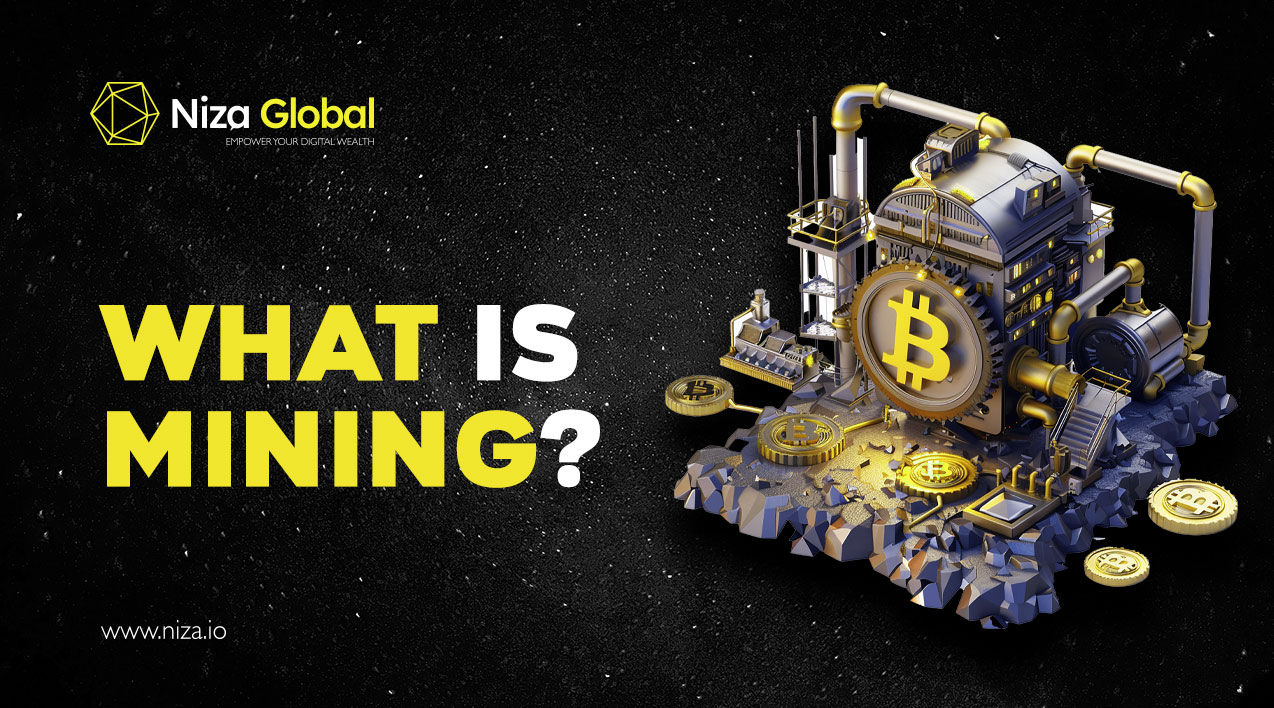Definition
Mining is the process by which specialized computer networks generate new Bitcoin and verify new transactions. It is essential for the creation of new coins and the validation of transactions in Bitcoin and many other cryptocurrencies. Through vast decentralized networks of computers, mining secures blockchains—the virtual ledgers that document cryptocurrency transactions. In exchange for contributing computational power, miners are rewarded with new coins. This creates a feedback loop: miners maintain and secure the blockchain, the blockchain rewards the miners, and the reward incentivizes further blockchain maintenance.
How Does Mining Work?
There are three main ways to obtain Bitcoin and other cryptocurrencies: by purchasing them on exchanges like Coinbase, receiving them as payment for goods or services, or mining them. The third method is what we’re focusing on, using Bitcoin as an example.
Bitcoin mining, which was once accessible to anyone with a home computer, has evolved as the blockchain has grown. The computational power required for mining Bitcoin today is far greater than it was when Bitcoin first launched. In 2009, mining one Bitcoin required significantly less computational power. However, by 2024, the computing power needed to mine a Bitcoin is roughly six times higher due to the increasing difficulty of mining as more miners join the network.
Because of this rise in complexity, mining is no longer profitable for casual hobbyists. Most mining is now conducted by specialized companies or groups who pool their resources. Nevertheless, it’s useful to understand how mining works.
Specialized computers perform the complex calculations needed to verify and record new Bitcoin transactions, ensuring the security of the blockchain. Verifying the blockchain demands enormous computing power, which miners voluntarily contribute.
Mining Bitcoin is similar to operating a large data center. Companies purchase the necessary mining hardware and pay for the electricity required to keep the machines running and cool. For mining to be profitable, the value of the coins earned must exceed the cost of mining them.
What Motivates Miners?
Bitcoin’s network operates like a lottery. Each computer in the network races to be the first to guess a 64-digit hexadecimal number, known as a “hash.” The faster a computer can make guesses, the higher the chance it has of winning the reward.
When a miner successfully guesses the hash, they update the blockchain ledger with the newly verified transactions, adding a new “block” to the chain. The miner is then rewarded with a predetermined amount of newly minted Bitcoin. This process happens approximately every ten minutes. As of April 2024, miners receive 3.125 Bitcoin per block. However, as mining difficulty increases over time, the reward will continue to decrease until all Bitcoin have been mined, which is projected to occur by 2140.
There is a maximum supply of 21 million Bitcoin. After all coins have been mined, miners will no longer receive Bitcoin as a reward but will instead earn fees for validating transactions.
Why is Mining Important?
Mining plays a critical role in the functioning of Bitcoin and other cryptocurrencies. Beyond generating new coins, mining is vital for securing the blockchain. It ensures that Bitcoin can function as a peer-to-peer decentralized network, operating without the need for third-party oversight. Furthermore, mining provides an incentive for miners to contribute their computing power to the network, maintaining its security and stability.


